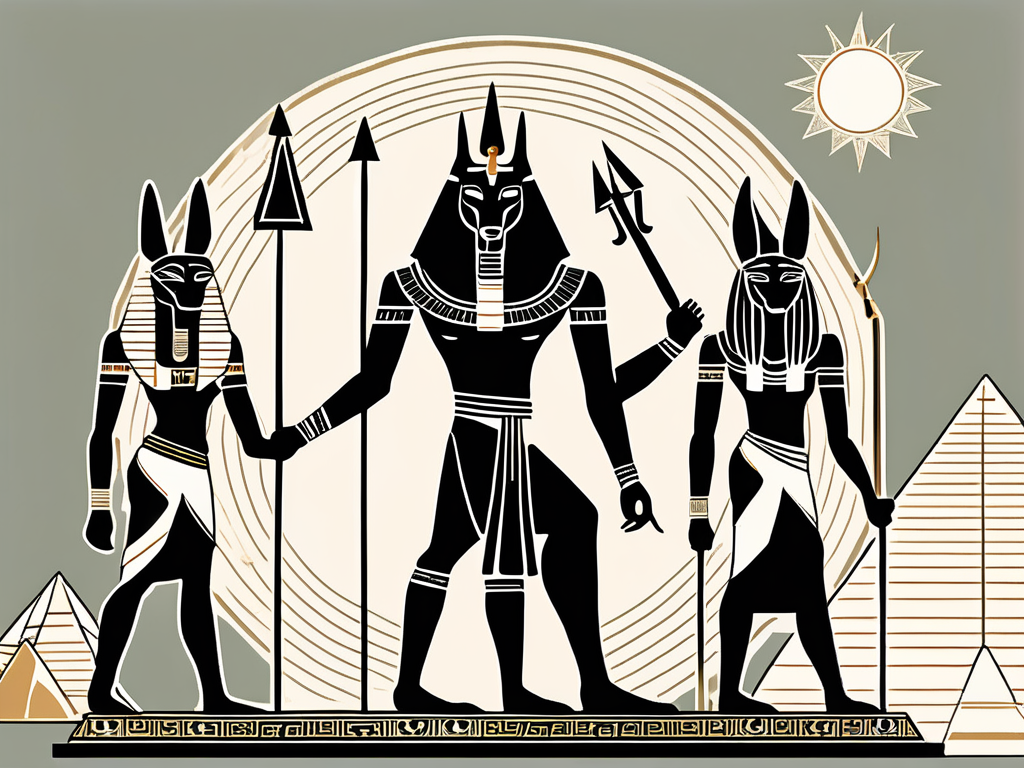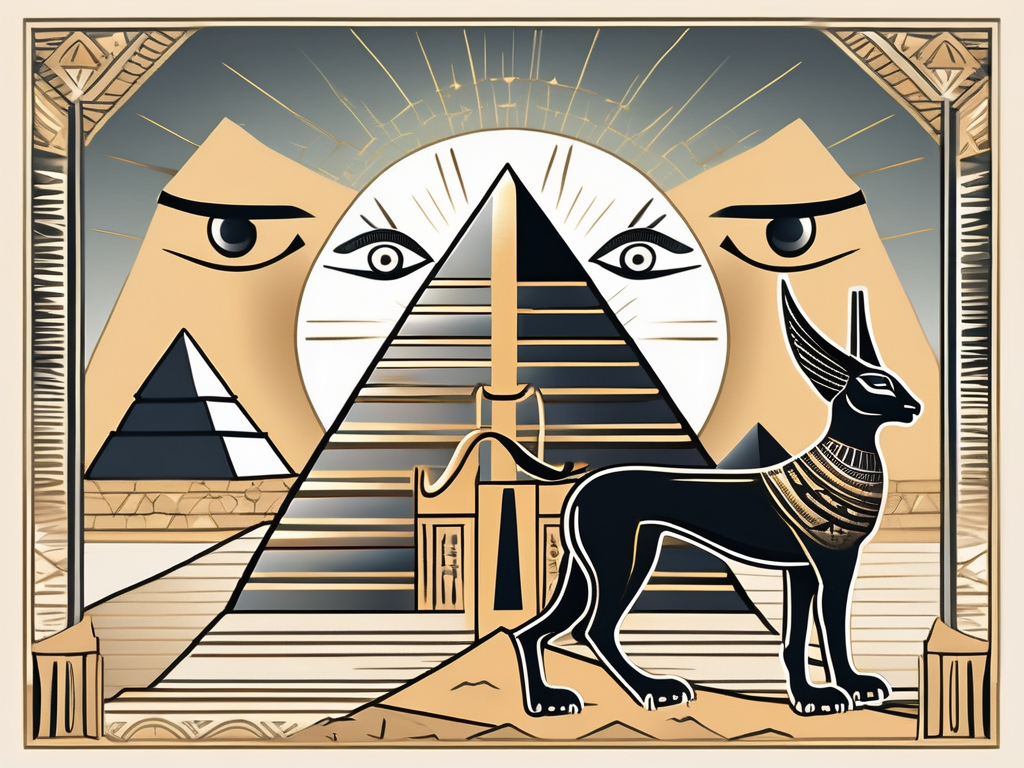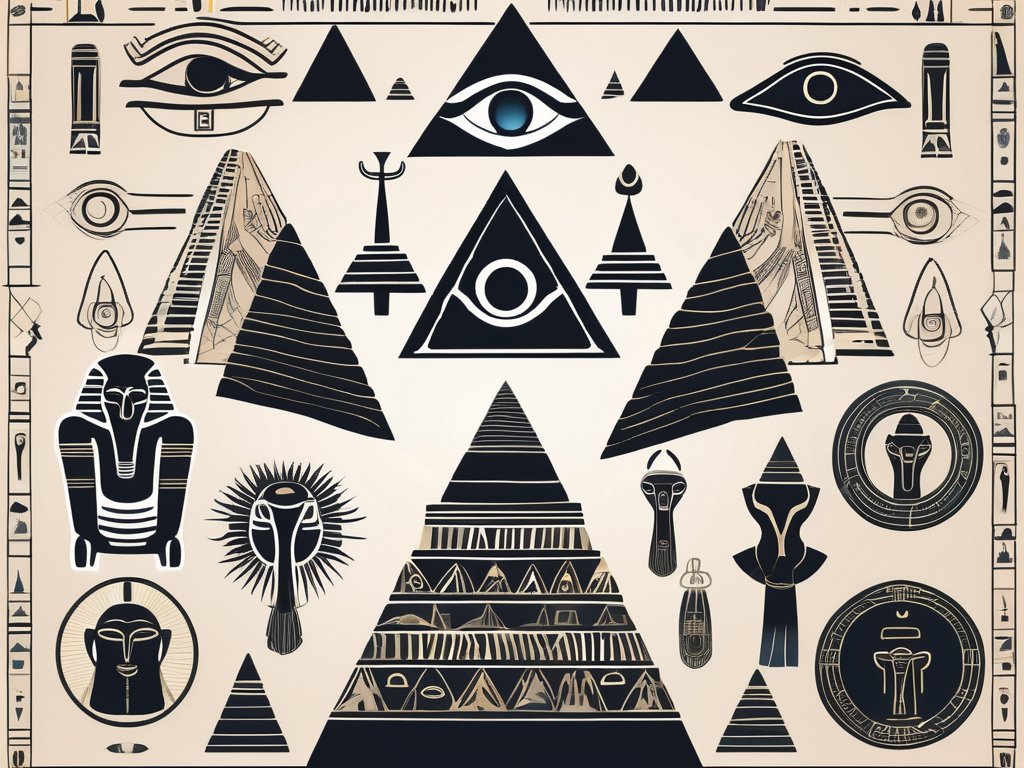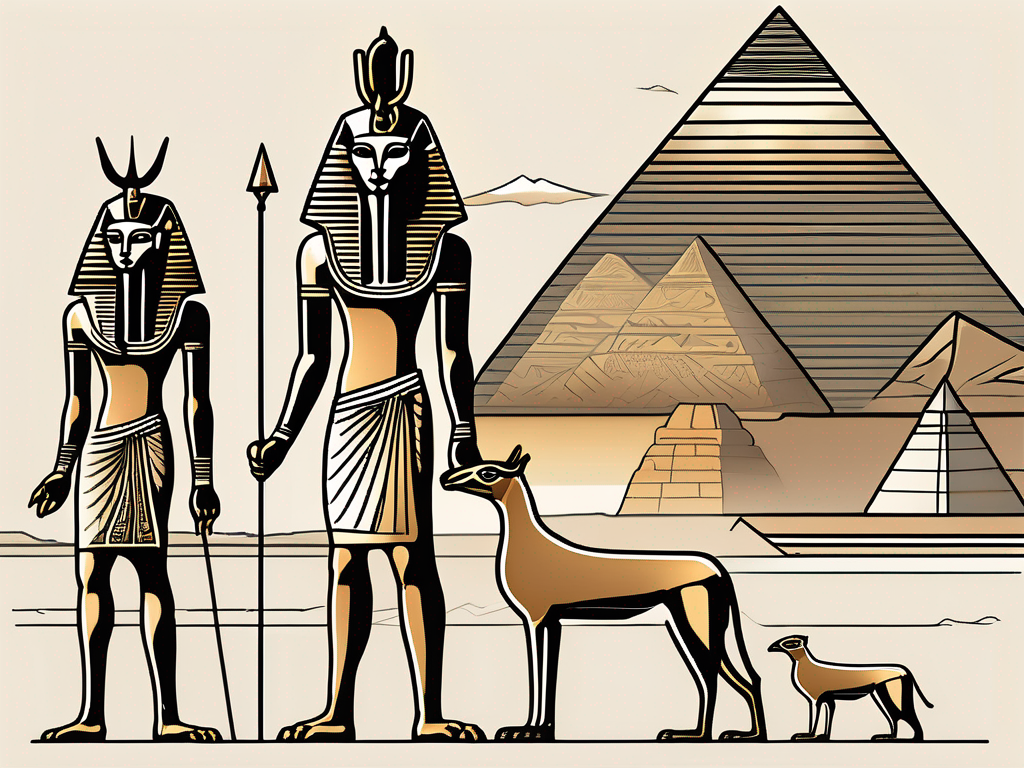In ancient Egypt, there were numerous gods and goddesses worshipped by the people. Each deity played a specific role in the lives of the ancient Egyptians, and their worship was deeply ingrained in their society. Two of these fascinating aspects of ancient Egyptian culture are Nekhen and the PE Egyptian God. Let’s delve into the mysteries surrounding them and uncover the secrets of their significance.
Understanding the Concept of Nekhen
At first glance, the word “Nekhen” may not ring a bell for many. However, Nekhen was more than just a place; it was a spiritual concept that held immense historical significance for the ancient Egyptians.
The Historical Significance of Nekhen
Nekhen, also known as Hierakonpolis, was an ancient city located in Upper Egypt. It was one of the earliest urban centers in Egypt and served as the capital of the Predynastic Period. Nekhen played a vital role in the development of ancient Egyptian civilization.
Archaeological evidence found in Nekhen reveals the grandeur of this ancient city. Temples dedicated to various deities, palaces, houses, and remnants of a powerful civilization have all been uncovered by Egyptologists. These discoveries shed light on the lifestyles and religious practices of the people who inhabited this once-thriving city.
The city of Nekhen was strategically located on the banks of the Nile River, providing its inhabitants with fertile land for agriculture and access to trade routes. This advantageous position allowed Nekhen to flourish and become a center of political, economic, and cultural activity.
One of the most significant archaeological finds in Nekhen is the Narmer Palette, a ceremonial tablet that depicts the unification of Upper and Lower Egypt by King Narmer. This artifact not only showcases the political power of Nekhen but also symbolizes the birth of a unified Egyptian state.
The city’s prominence extended beyond its physical boundaries. Nekhen was revered as a sacred place, believed to be the dwelling of powerful deities and a gateway to the afterlife.
The Spiritual Aspects of Nekhen
That brings us to the spiritual significance of Nekhen. In ancient Egyptian mythology, Nekhen represented the place where the souls of the departed went after death. It was believed to be a realm where the deceased could start their journey towards the afterlife.
According to ancient texts, the souls of the dead were guided by powerful deities associated with Nekhen. These deities played a crucial role in protecting, guiding, and judging the souls of the departed on their perilous journey.
The most prominent deity associated with Nekhen was Horus, the falcon-headed god of kingship and the sky. Horus was believed to be the divine protector of Nekhen and the patron deity of the ruling elite. His presence in Nekhen symbolized the city’s political and spiritual significance.
Another important deity associated with Nekhen was Nekhbet, the vulture goddess who was often depicted as a protective mother figure. Nekhbet was believed to watch over the city and its inhabitants, providing them with guidance, protection, and fertility.
As a spiritual concept, Nekhen represented the eternal cycle of life and death. It embodied the belief in the continuity of existence beyond the physical realm and the interconnectedness of the living and the dead.
The rituals and ceremonies conducted in Nekhen were essential in maintaining the cosmic order and ensuring the well-being of both the living and the deceased. These religious practices included offerings, prayers, and elaborate funerary rituals that aimed to honor the gods, appease the spirits, and secure a prosperous afterlife.
Overall, Nekhen was more than just a physical city; it was a spiritual realm that held profound meaning for the ancient Egyptians. Its historical significance and spiritual aspects make Nekhen an intriguing subject of study, offering valuable insights into the beliefs, practices, and worldview of one of the world’s most fascinating civilizations.
The PE Egyptian God: An Overview
Now that we have a basic understanding of Nekhen, let’s turn our attention to the PE Egyptian God. The PE Egyptian God was one of the most revered deities in ancient Egypt, with a rich history and symbolic meaning associated with their worship.
The origins of the PE Egyptian God can be traced back to the early dynastic period of ancient Egypt. They emerged as a prominent deity during a time when the concept of gods and goddesses began to take shape in the Egyptian pantheon. As civilization developed, so did the worship and reverence for this powerful god.
The Role of the PE Egyptian God in Ancient Egypt
The PE Egyptian God played a pivotal role in ancient Egyptian society. They were considered a god of life, death, and resurrection. The worship of the PE Egyptian God focused on attaining eternal life and protection in the afterlife.
Ancient texts depict the PE Egyptian God as a powerful deity who had the ability to grant new life to the deceased. They were believed to be the ultimate judge, overseeing the weighing of the heart ceremony, where the souls of the deceased were judged based on their life’s actions.
Furthermore, the PE Egyptian God was also associated with fertility and the cycle of life. They were believed to bring abundance and prosperity to the land, ensuring the continuation of life and the well-being of the people.
The Symbolism of the PE Egyptian God
Symbols played a significant part in Egyptian mythology, and the PE Egyptian God was no exception. One of the key symbols associated with this deity was the Ankh, which represented life and eternity. The Ankh symbol was often depicted in the hands of the deity, signifying their power over life and death.
In addition to the Ankh, the PE Egyptian God was also closely associated with the sun. They were often depicted with a solar disk on their head, symbolizing their connection to the sun god Ra. This solar symbolism represented the god’s role as a bringer of light and life.
Furthermore, the PE Egyptian God was frequently depicted with falcon-like features, symbolizing their association with the sky and divinity. This falcon-headed representation showcased the god’s ability to soar above mortal realms and connect with the spiritual realm.
Another symbol often associated with the PE Egyptian God was the Djed pillar. The Djed pillar represented stability and endurance, and its association with the god emphasized their role as a protector and sustainer of the world.
In conclusion, the PE Egyptian God held a significant place in ancient Egyptian culture and religion. Their role as a god of life, death, and resurrection, along with their symbolic representations, made them a central figure in the belief system of the ancient Egyptians.
The Connection Between Nekhen and the PE Egyptian God
Now that we understand the individual significance of Nekhen and the PE Egyptian God, let’s explore the profound connection between the two.
Theological Links Between Nekhen and the PE Egyptian God
According to ancient Egyptian beliefs, Nekhen was considered the dwelling place of the PE Egyptian God. It was here that the god’s power emanated, and the souls of the deceased converged on their journey towards the afterlife.
The connection between Nekhen and the PE Egyptian God was crucial as it reinforced the link between life, death, and resurrection. The god’s presence in Nekhen symbolized their role in guiding the souls of the departed through the spiritual realm, eventually leading them to their final destination.
The Impact of this Connection on Ancient Egyptian Society
The connection between Nekhen and the PE Egyptian God had a profound impact on ancient Egyptian society. It influenced their religious rituals, burial practices, and the overall understanding of the afterlife.
Ancient Egyptians believed that by honoring and worshiping the PE Egyptian God and acknowledging the significance of Nekhen, they would have a better chance of a successful journey in the afterlife. This belief system shaped their daily lives, driving them to live virtuously and seek divine favor.
Unveiling the Mysteries: New Discoveries and Interpretations
The wonders of ancient Egypt continue to captivate us, and recent discoveries have shed new light on the mysteries surrounding Nekhen and the PE Egyptian God.
Recent Archaeological Findings
With advancements in archaeological techniques, ongoing excavations in Nekhen have unraveled fascinating artifacts and structures, providing further insight into the city’s spiritual and cultural significance. These findings offer a glimpse into the lives of the ancient Egyptians and their unique beliefs surrounding the afterlife.
Modern Interpretations of Ancient Texts
As we explore ancient Egyptian texts, historians and Egyptologists are constantly reassessing their interpretations. Modern scholarship continues to refine our understanding of the rich mythology associated with Nekhen and the PE Egyptian God, ensuring a deeper comprehension of this captivating chapter in human history.
The Lasting Influence of Nekhen and the PE Egyptian God
The legacy of Nekhen and the PE Egyptian God extends far beyond the boundaries of ancient Egypt, shaping subsequent religious beliefs and leaving a lasting impact on modern culture.
Influence on Later Egyptian Beliefs and Practices
The worship of the PE Egyptian God left an indelible mark on ancient Egyptian religion. The concept of Nekhen and the belief in the PE Egyptian God’s judgment in the afterlife influenced later religious practices and rituals, including the construction of grand burial sites and the preservation of the deceased through mummification.
The Legacy of Nekhen and the PE Egyptian God in Modern Culture
Even in the present day, the allure of ancient Egypt and its deities continues to captivate us. Nekhen and the PE Egyptian God remain iconic symbols of the mystery and grandeur associated with Egypt’s rich cultural heritage.
From ancient texts to archaeological discoveries, our quest to unveil the secrets of Nekhen and the PE Egyptian God has enriched our understanding of the ancient Egyptian civilization. The souls of Nekhen and the power of the PE Egyptian God continue to leave an indelible imprint on human history, reminding us of the timeless allure of ancient mysteries.












